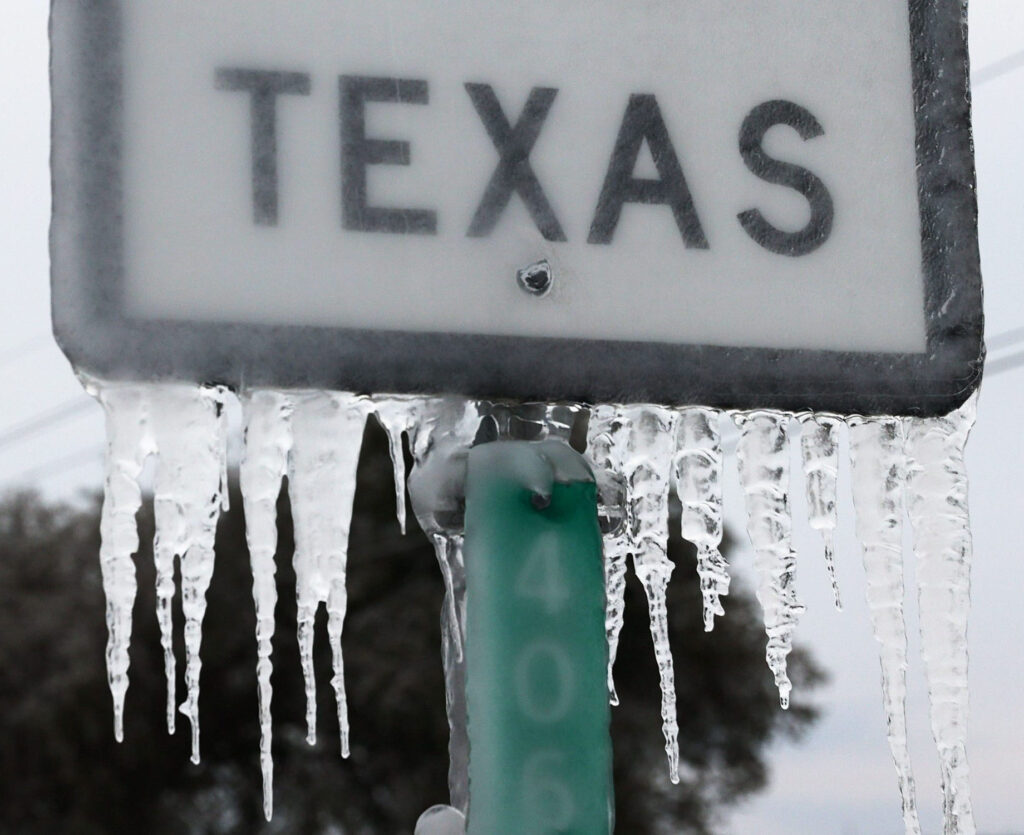As Winter Storm Uri wrought havoc in the American midwest, entire power grids shut down, and states like Texas faced an unprecedented crisis. Tuesday, February 16 marked the coldest day in North Texas in 72 years, with towns in the Dallas-Fort Worth area reaching an astonishing minus two degrees fahrenheit.
These extreme weather conditions triggered widespread blackouts across an unprepared Texas, overwhelming the state’s weak infrastructure designed to withstand only mild temperatures. Millions of Texans, who have gone days without power, some without water, are calling for relief as hospitals desperately attempt to conserve their resources. Public officials and utility workers continue to struggle to support affected regions.
The severity of these challenges have already caused the Biden administration to approve federal emergency declaration requests from Texas, Oklahoma, and Louisiana. Ranging from frozen power plants to iced natural gas wells to hundreds of cases of carbon monoxide poisoning, the drastic consequences of the storm have called into question the readiness of the U.S. against a raging climate crisis.
The cascade of failures against the storm is not a consequence of short-term flaws, but rather a culmination of America’s long history of climate change denial. To fully understand the roots of this crisis, we must examine its connections to climate change.
Research indicates that global warming caused by man-made greenhouse gas emissions played a huge role in this fierce winter storm that highlighted the brittleness of many states’ infrastructure.
“The current conditions in Texas are historical, certainly generational,” said Judah Cohen, Director of Seasonal Forecasting at Atmospheric and Environmental Research, to The Guardian. “But this can’t be hand-waved away as if it’s entirely natural. This is happening not in spite of climate change. It’s in part due to climate change.”

A sign along Highway 195 in Killeen, Texas. Photo courtesy of Business Insider
A global rise in greenhouse gas emissions has increased the frequency and intensity of heat waves, causing sudden stratospheric warming. As a result, the jet stream, a barrier between the Arctic and the southern hemisphere, is weakening. This allows the freezing air and high winds of the polar vortex to escape into southern regions, causing episodes of bitter frost in conventionally warm places.
Given the ample scientific evidence of the connection between global warming and unpredictable weather changes prior to Winter Storm Uri, why are states like Texas still so ill-equipped to deal with these kinds of catastrophes? The answer highlights the larger global trend of governments and corporations constantly prioritizing economic concerns over environmental ones.
“The extreme weather events that we’re experiencing this week across the central, southern, and now the eastern United States do yet again demonstrate to us that climate change is real, and it’s happening now, and we’re not adequately prepared for it,” said White House Homeland Security Adviser Liz Sherwood-Randall.
Weatherizing existing infrastructure and implementing more advanced technology often comes at a high cost, and most state governments and energy corporations have no incentive to reinforce infrastructure. As our environmental crisis escalates, climate-linked disasters will only intensify and — like Winter Storm Uri — cause many severe fallouts.
The existential threat of climate change on many communities will not go away until we make direct efforts to reduce energy consumption and spread sustainable energy production. To limit greenhouse gas emissions and lower temperatures, experts believe that communities need to localize energy production and integrate sustainable infrastructure through existing power grids.
More important, we need to shift reliance on so-called cheap energies like fossil fuels and instead invest in sustainable energy systems, despite the higher short-term installation costs. Sustainable energy not only saves money in the long run, but also is key to protecting our planet.
While the web of variables that have aligned to produce Winter Storm Uri is complex, the extreme cold and its devastating impacts have prompted a mass reckoning of the severity of our climate crisis. One hopes that our nation will finally wake up from decades of climate change inaction and fight for a habitable future.




